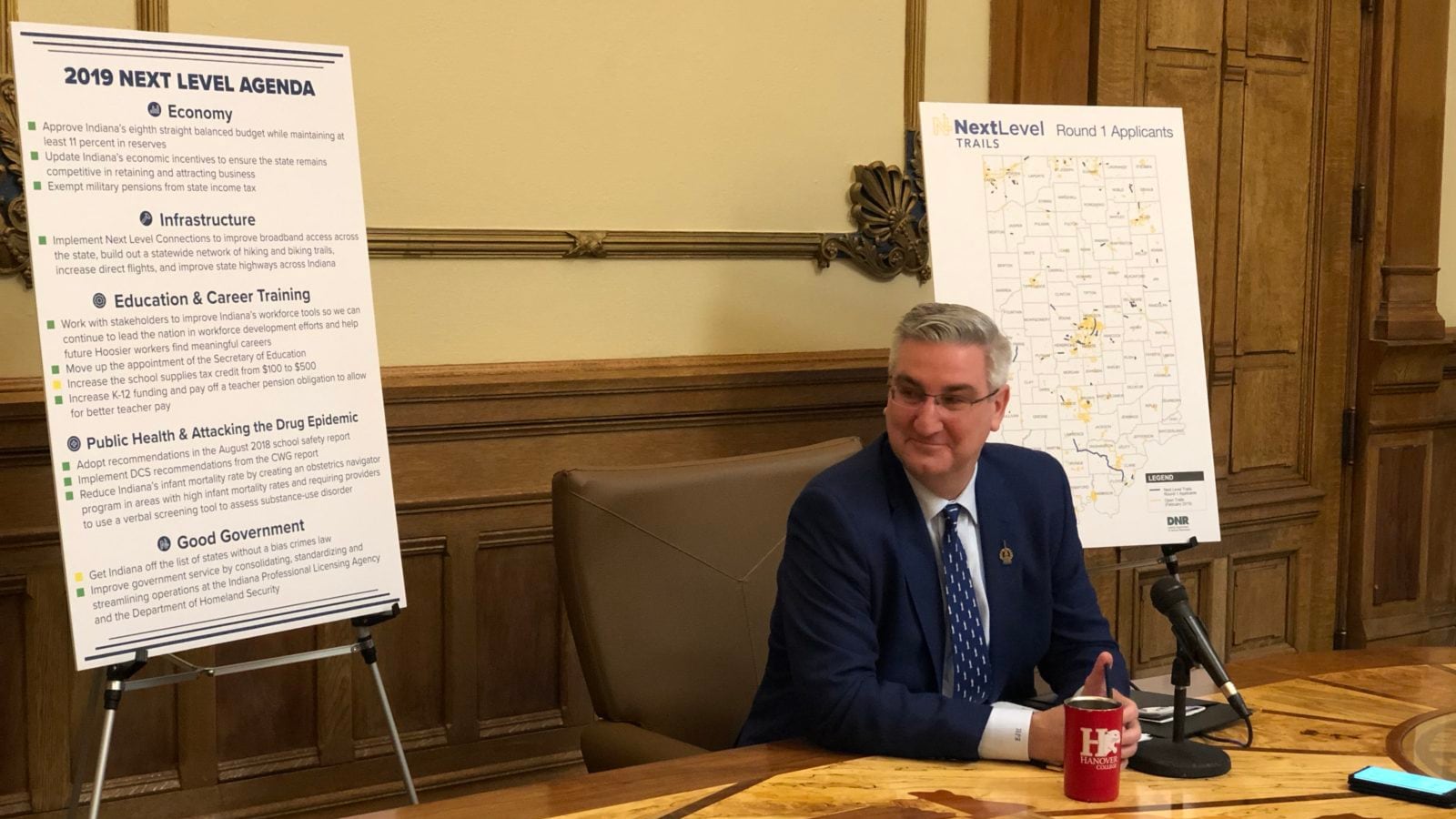Gov. Eric Holcomb said he hopes Indiana can avoid a teacher walkout in light of recent steps lawmakers are considering to raise teacher salaries.
“I hope they don’t walk out,” Holcomb said in a press conference Wednesday. “We’re not walking out on them, we’re walking to them.”
Across the country, teachers have gone on strike to protest low pay and what they consider unacceptable working conditions. In Denver, teachers recently ended a nearly four-day-long strike with a deal that would give teachers in the district, on average, an 11.7 percent raise. In other states, such as Oklahoma and West Virginia, protests spread statewide.
Indiana teachers are prohibited by law from striking, but similar laws in other states haven’t kept teachers from walking out. And while there has not yet been large-scale moves to organize a strike in Indiana, teachers throughout the state have said they’re unhappy with stagnant pay, and some districts, such as Portage, have had teachers take to the picket lines. Last month, state teachers union leaders told the IndyStar that a strike was not planned, but it wasn’t completely out of the question if demands went unaddressed.
Indiana lawmakers have put forth several proposals this year to push more money to teachers, but some educators and education advocates have raised concerns that the plans don’t guarantee raises — instead, local districts would have to decide to add any additional money they get from the state or efforts to drive down costs to teacher paychecks.
The first draft of the state’s next two-year budget would increase what Indiana spends on schools overall by $461 million — or 4.3 percent — through 2021. In line with Holcomb’s requests, the state would also make a one-time payment of $150 million from state reserves that would pay down a pension liability for schools.
Other efforts so far are fairly small compared to the hundreds of millions of dollars likely needed if the state were to give significant raises to teachers statewide. House lawmakers are proposing to preserve a controversial merit-based bonus pool, at $30 million per year. And bills that would offer schools funding for “residencies” to give new teachers more support early on and provide grants for districts that create leadership roles and mentoring opportunities for teachers would be funded with $6 million over two years.
For the long-term, Holcomb pointed to a panel of business professionals and industry leaders he assembled to come up with more creative solutions for how the state can give educators raises.
“We’re trying to solve something that’s lingered for decades,” Holcomb said. “I’m impatient about some things, too, but it’s better to be part of the solution, not the problem.”
But schools and districts have been asking the state to set aside more money for education for years, even though recent increases have mostly kept pace with inflation.
That has meant that more districts across the state have asked voters to approve tax hikes to generate extra revenue. In Marion County, Beech Grove Schools and Wayne Township have already confirmed they will be seeking referendums this year.


